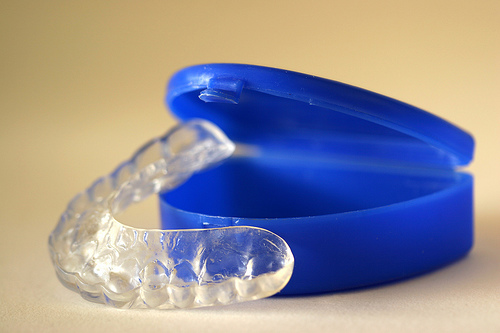Diabetes and Dental Care
January 29th, 2020

When most people think of complications of diabetes, they think of an increased risk of blindness, limb amputation, heart disease, and neuropathy. However, Drs. Charlie Collins, Ute Collins and our team want you to know that emerging research is revealing a possible connection between uncontrolled diabetes and dental problems. Whether you have type 2 diabetes or type 1, uncontrolled high blood glucose level increases the risk of certain oral health conditions, including:
- Cavities
- Tooth decay
- Gingivitis (early gum disease)
- Periodontal disease (advanced gum disease)
Diabetes and proper dental care
If you have diabetes, it is more important than ever to take your dental care seriously and practice excellent oral hygiene. These recommendations will help:
- Manage your diabetes. First and foremost, it is vital to control your high blood sugar in accordance with your physician’s instructions — not only for the sake of your oral health, but your overall health. With properly controlled blood sugar, you reduce your risk of developing gingivitis and other oral health issues.
- Practice good at-home oral hygiene. This means brushing at least twice a day AND flossing. At a minimum, brush your teeth in the morning and at night, but after meals and snacks if you can. Use a soft toothbrush to avoid injuring your gums. Don’t neglect flossing, because it helps to remove plaque below the gumline and between teeth.
- Visit the dentist regularly. While it is important to see the dentist every six months even if you don’t have diabetes, it is even more crucial to have a professional teeth cleaning and dental exam if you have the disease. As dental professionals, our team at Mountain View Dental Center is able to detect early dental conditions before they develop into something more serious and costly.
- Tell your dentist that you have diabetes. If you were recently diagnosed with diabetes, be sure to let us know as soon as possible, and remind us at every appointment.
- Be conscientious about examining your own gums and teeth. By looking for early signs of gum disease, which can include bleeding gums, irritated gums, gums that are red (versus a healthy pink), or swelling, we can get started on treatment right away.
Managing diabetes takes effort, not only in watching your diet, exercising, monitoring your blood sugar levels, and taking your medication, but obtaining proper dental care.
To learn more about the link between diabetes and oral health, or to schedule an appointment with Drs. Charlie Collins, Ute Collins, please give us a call at our convenient Anacortes office!







